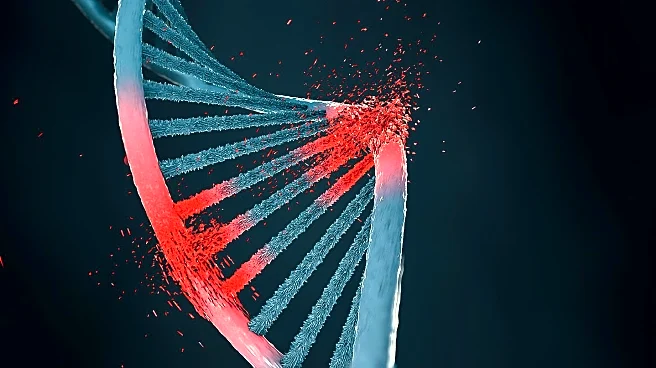What's Happening?
A study has identified key genes correlating NOD1 and endoplasmic reticulum stress in acute liver failure induced by Hepatitis B virus (HBV). The research highlights the role of the innate immune system
in acute inflammation triggered by HBV infection. NOD1, a pattern recognition receptor, is involved in regulating immune responses during liver failure. The study found differential expression of genes such as CFTR, DERL3, and NOD1, which were upregulated, while DNAJB9 and SEL1L were downregulated in HBV-induced liver failure. These findings suggest a complex interplay between ER stress and immune-inflammatory responses during HBV infection.
Why It's Important?
Understanding the genetic and molecular mechanisms underlying HBV-induced liver failure is crucial for developing targeted therapies. The identified genes play significant roles in immune responses and ER stress, which are key factors in liver disease progression. This research could lead to new treatment strategies that modulate these pathways, potentially improving outcomes for patients with HBV-associated liver failure. The study also highlights the importance of personalized medicine approaches in managing complex liver diseases.
Beyond the Headlines
The study's findings on gene expression patterns in HBV-induced liver failure could have broader implications for understanding other liver diseases and immune-related conditions. The identified genes may serve as biomarkers for disease progression and treatment response, offering new avenues for research and clinical applications. Additionally, the study underscores the need for comprehensive clinical data and advanced methodologies to fully elucidate the genetic and immune interactions in liver disease.










